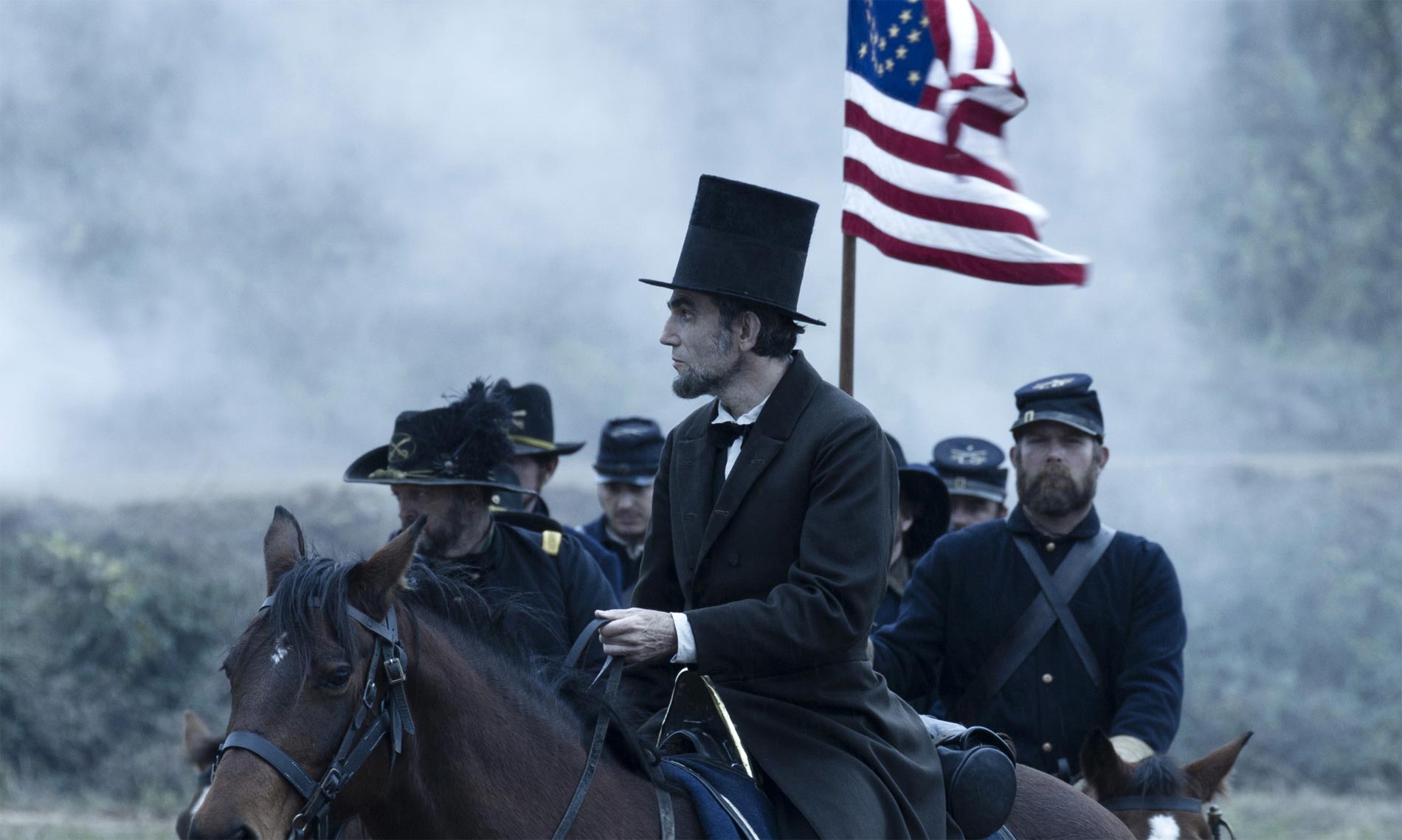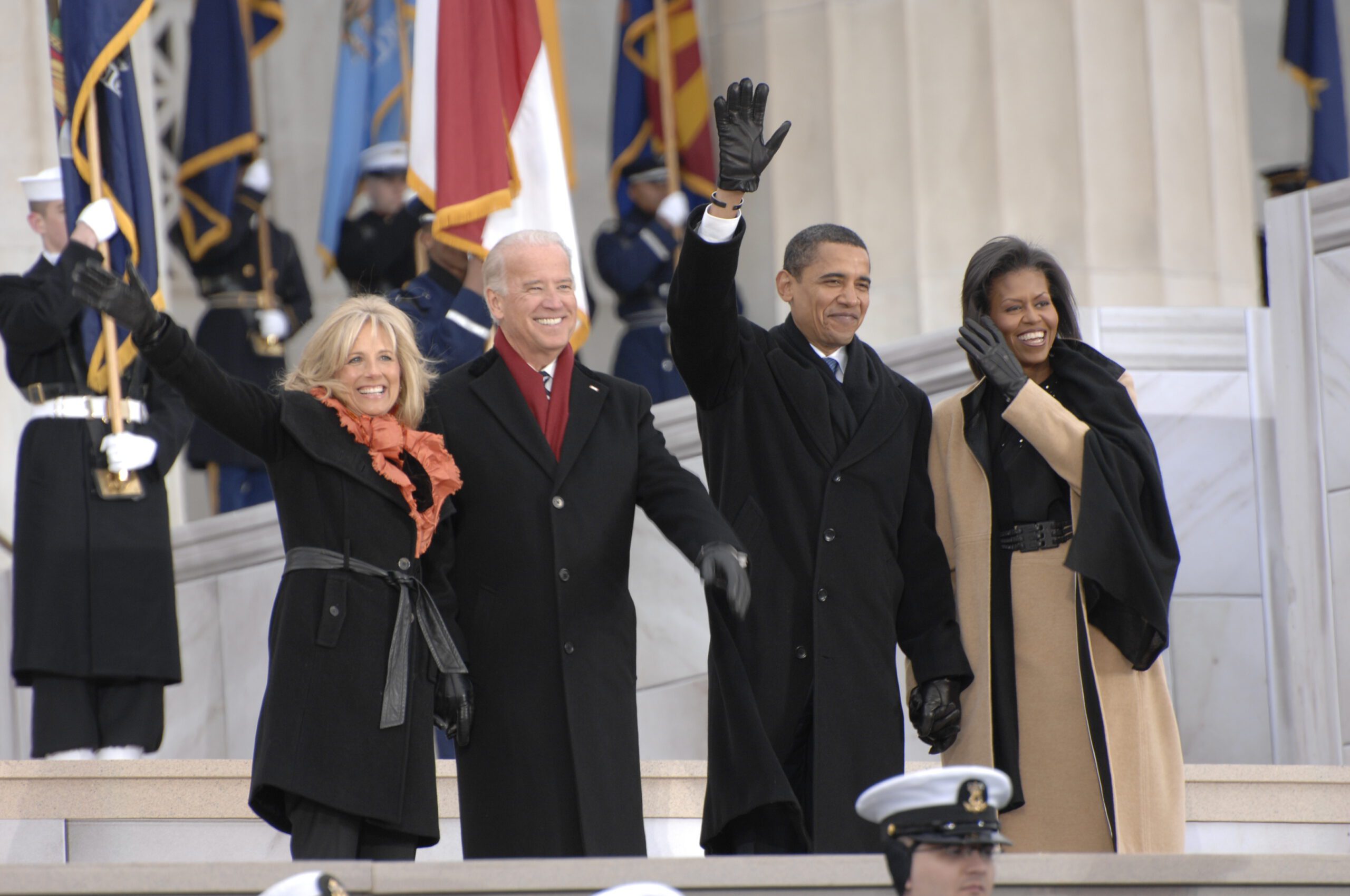US politics, and particularly US Presidential politics, is the stuff of great drama. Steven Spielberg’s latest blockbuster Lincoln, based on the life of Abraham Lincoln, and in particular his fight to end slavery and the US Civil War, was nominated for an amazing 12 Oscars this year. Daniel Day-Lewis, who had already won both a BAFTA and a Golden Globe, took out Best Actor for his extraordinary portrayal of the 16th President.
A special aura surrounds President Lincoln in the US popular imagination. His herculean effort at ending slavery and the US Civil War has bestowed on him an almost godlike status in the eyes of many Americans. He is also a key figure that helps make sense of American “civil religion”, that is, a religion of the state, separate and distinct from traditional religions such as Judaism and Christianity, but nonetheless relying heavily on these traditions for images, narratives, rituals and rhetoric. As part of this civil religion, national documents like the Constitution and Declaration of Independence become ‘sacred’ texts; national days of remembrance, prayer services and presidential inaugurations take on the flavour of ‘religious’ rituals and memorials. Within this dynamic, the US President takes on the role of prophet, priest, martyr and sometimes even saviour of the nation.
 Lincoln is arguably the first (and perhaps only) US President viewed in all these iconic roles. A hugely popular President, Lincoln is regarded by many as a visionary. His commitment to the abolition of slavery is not just something he sees as important for the nation at that moment, but forever. As his character states during the film “Abolishing slavery by constitutional provisions settles the fate for all coming time. Not only of the millions now in bondage, but of unborn millions to come.” While his advisors urge him to prioritize peace in the Civil War, Lincoln knows that without the question of slavery being resolved, this peace will only be temporary. For the future unity of the country, both the war and slavery must end.
Lincoln is arguably the first (and perhaps only) US President viewed in all these iconic roles. A hugely popular President, Lincoln is regarded by many as a visionary. His commitment to the abolition of slavery is not just something he sees as important for the nation at that moment, but forever. As his character states during the film “Abolishing slavery by constitutional provisions settles the fate for all coming time. Not only of the millions now in bondage, but of unborn millions to come.” While his advisors urge him to prioritize peace in the Civil War, Lincoln knows that without the question of slavery being resolved, this peace will only be temporary. For the future unity of the country, both the war and slavery must end.
In scenes such as this, Lincoln goes some way in portraying how the President is at one and the same time the High Priest of the Nation and its prophet, challenging it to continually progress towards higher and loftier goals, rebuking it for past failures, but always out of deep love and commitment. And always, the President is called on to make great sacrifices for the nation, sometimes even to give his own life. The assassination of Lincoln was portrayed in just such a manner – a martyr for the cause of the United States of America, with Lincoln paying the ultimate price for the unity of the nation, just as Christ paid the ultimate price for unity between God and His creation.1
At the very end of the film, we see Lincoln further fulfilling his role as High Priest of the nation when he delivers his second Inaugural Address. His incredibly short speech (only 700 words in total) concludes with something that sounds very similar to the conclusion to a priest’s sermon, or to a religious service:
With malice toward none, with charity for all, with firmness in the right as God gives us to see the right, let us strive on to the work we are in, to bind up the nation’s wounds, to care for him who shall have borne the battle and for his widow and his orphan, to do all which may achieve and cherish just and lasting peace among ourselves and with all nations.2
This is not just Hollywood prose, these words are taken directly from the original speech. There are numerous rhetorical resonances with Old Testament prophets particularly in God’s promises to bind up the injuries of his people (Isaiah 30:26).3
Numerous presidents have woven scripture into their speeches and Barack Obama is no exception.4 After the Newtown shooting incident, Obama’s words to the nation included references to Isaiah 61: “May God bless the memory of the victims and, in the words of Scripture, heal the brokenhearted and bind up their wounds”. His conclusion to his inauguration address is also worth noting:
You and I, as citizens, have the obligation to shape the debates of our time – not only with the votes we cast, but with the voices we lift in defense of our most ancient values and enduring ideals.
Let each of us now embrace, with solemn duty and awesome joy, what is our lasting birthright. With common effort and common purpose, with passion and dedication, let us answer the call of history, and carry into an uncertain future that precious light of freedom.
Thank you, God Bless you, and may He forever bless these United States of America.
Here, like Lincoln, Obama assumes the role of High Priest of the nation. Just as at the conclusion of a church service, a minister calls members of the congregation to “go out into the world and live and work to [God’s] praise and glory”, Obama is calling American citizens to go forth into the world and serve the cause of the United States of America.
 By referring to “ancient values” and “enduring ideals”, Obama imbues the idea of the US with a transcendent, almost eternal quality. This transcendence has been a critical component of US national identity since its colonization, at times endowing the US as a nation, not just its president, with Messiah-like status. Examples include the now famous speech by Jonathan Winthrop to the Puritan settlers likening the New World to the ‘City on a Hill’ Jesus spoke of in Matthew 5:13-16 and the 19th century doctrine of Manifest Destiny, which assumed that the United States had a unique calling and purpose as a leader in international politics.5 Although not explicit within US political rhetoric today (though Obama’s reference to the “light of freedom” certainly conjures up images of the City on a Hill), these ideas still shape much of the political context, leading some commentators to argue that US foreign policy is a kind of “manifest theology” of the US civil religion.6
By referring to “ancient values” and “enduring ideals”, Obama imbues the idea of the US with a transcendent, almost eternal quality. This transcendence has been a critical component of US national identity since its colonization, at times endowing the US as a nation, not just its president, with Messiah-like status. Examples include the now famous speech by Jonathan Winthrop to the Puritan settlers likening the New World to the ‘City on a Hill’ Jesus spoke of in Matthew 5:13-16 and the 19th century doctrine of Manifest Destiny, which assumed that the United States had a unique calling and purpose as a leader in international politics.5 Although not explicit within US political rhetoric today (though Obama’s reference to the “light of freedom” certainly conjures up images of the City on a Hill), these ideas still shape much of the political context, leading some commentators to argue that US foreign policy is a kind of “manifest theology” of the US civil religion.6
Whilst most US Presidents throughout history have assumed the role of priest and prophet of the nation, few have been martyrs and even fewer considered saviours. Perhaps more so than other presidents in recent history, Obama has, among his supporters, taken on an almost saviour-like quality. As the first African-American President and one who campaigned on policies encapsulated by his book The Audacity of Hope, Obama has certainly had a lot of expectations to live up to, with some more flippant social media commentary describing his first inauguration as “the inauguration of Jesus”. Posters produced for his second inauguration likened him to Jesus and even some mainstream news media used biblical metaphors to describe his election to a second term.7 Whether done flippantly or in all seriousness, these contribute to the superhuman aura that accompanies the figure of the US president in general, and Barack Obama in particular.
There is something bound up in US civil religion and the figure of the President as prophet, priest, martyr and perhaps even savior that attracts us. We yearn for someone more confident, more competent, more inspiring, more perfect than ourselves to lead us into a more peaceful, prosperous, compassionate and generous future. Perhaps that is why politics is so enthralling, yet ultimately also so disappointing. For in the end, political leaders, even the most charismatic, articulate and visionary, like Lincoln and Obama, are only human. If we are seeking a leader who will not disappoint us, we will have to look elsewhere.
Erin Wilson is the Director of the Centre for Religion, Conflict and the Public Domain, Faculty of Theology and Religious Studies, University of Groningen. The above is based on insights from her recently published book, After Secularism: Rethinking Religion in Global Politics.
1. Cherry, Conrad. 1971. “Introduction”, in Conrad Cherry (ed). Religious Interpretations of American Destiny. Englewood Cliffs, New Jersey: Prentice Hall, pp1-24, see especially pp6-7, fn5
2. To view the entire speech, visit http://www.presidency.ucsb.edu/ws/index.php?pid=25819
3. For other examples, see Isaiah 61; Hosea 6:1. Psalm 147:3 is also quite similar.
4. Other examples include Franklin Roosevelt, John F. Kennedy, Ronald Reagan, George H.W. Bush and George W. Bush. For more information, see E.K.Wilson After Secularism: Rethinking Religion in Global Politics, (Basingstoke: Palgrave Macmilln, 2012), esp Chapter Five
5. R. L. Coles, “Manifest Destiny Adapted for 1990s War Discourse: Mission and Destiny Intertwined” Sociology of Religion, Vol. 63, no. 4 (2002),pp 403–26
6. J. Galtung, “US Foreign Policy and Manifest Theology” in Jongsuk Chay (ed.). Culture and International Relations. (New York: Praeger (1990)) pp. 119–40
7. T. Starnes, “Inauguration Poster Likens Obama to Jesus” 20 January 2013. Available at http://radio.foxnews.com/toddstarnes/top-stories/inauguration-poster-likens-obama-to-jesus.html Accessed 20 February 2013